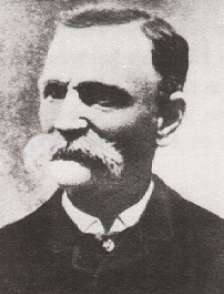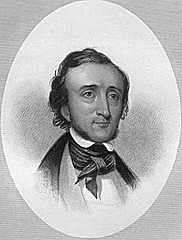First published in 1671, this anonymous verse came with a simple instruction that would render it into sense. Can you discover it?
I saw a peacock with a fiery tail
I saw a blazing comet drop down hail
I saw a cloud with ivy circled round
I saw a sturdy oak creep on the ground
I saw a pismire swallow up a whale
I saw a raging sea brim full of ale
I saw a venice glass sixteen foot deep
I saw a well full of men’s tears that weep
I saw their eyes all in a flame of fire
I saw a house as big as the moon and higher
I saw the sun even in the midst of night
I saw the man that saw this wondrous sight.
I saw a pack of cards gnawing a bone
I saw a dog seated on Britain’s throne
I saw King George shut up within a box
I saw an orange driving a fat ox
I saw a butcher not a twelvemonth old
I saw a great-coat all of solid gold
I saw two buttons telling of their dreams
I saw my friends who wished I’d quite these themes.




